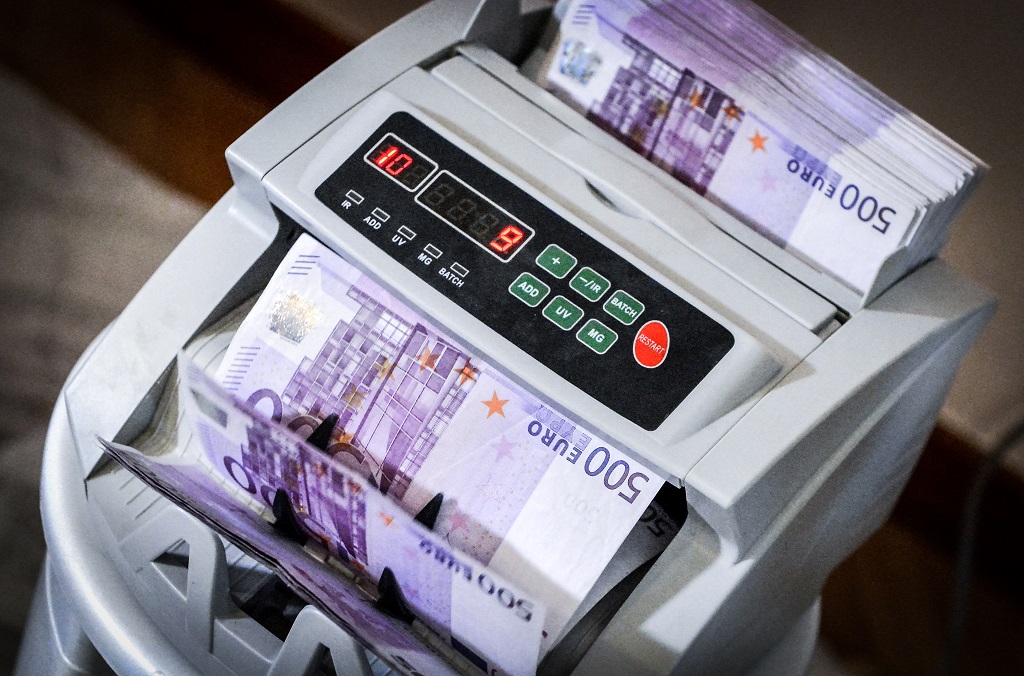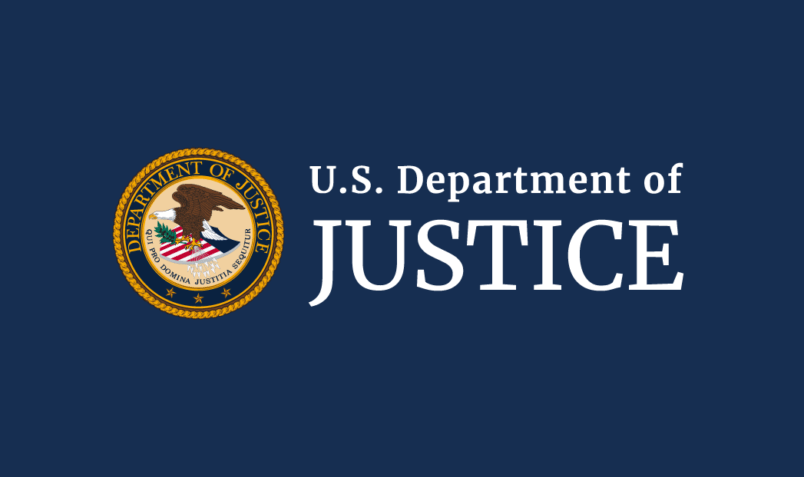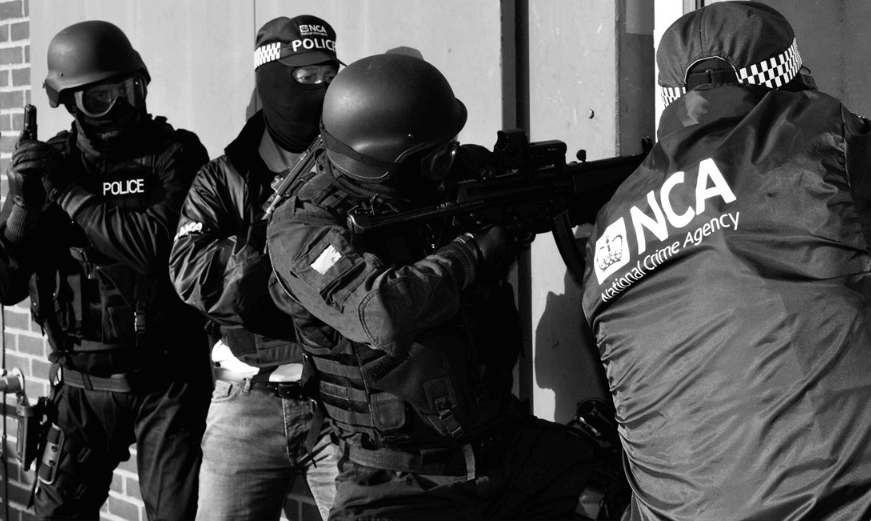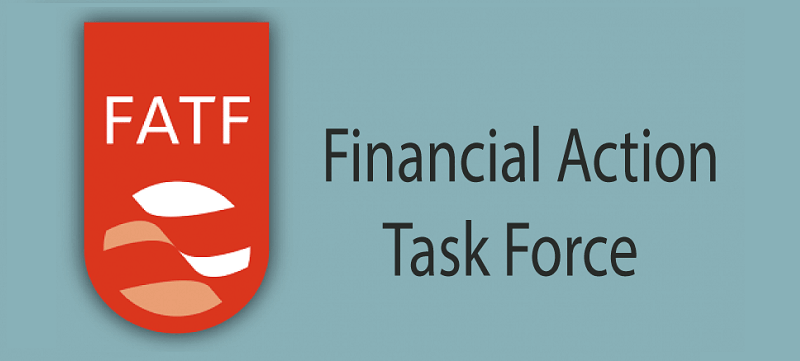
“Money laundering is the oxygen of organized crime,” Peter Hain, former UK Minister for Justice once said.
Money laundering is the concealment of the illicit sources of criminal gains, whereas terrorist financing is the gathering or provision of finances for terrorism. Money laundering deals with unlawful finances, but terrorist financing can come from both legal and criminal sources. Both employ similar strategies to illegally abuse national and global financial mechanisms. To combat these threats, a system that prohibits, identifies, and punishes unlawful money entrance into terrorism funds is required. Having a dotted line in between them, anti-money laundering (AML) and counter-terror financing (CFT) tactics work effectively in combination to target criminal or terrorist networks through financial activity, demanding procedures to monitor transactions and detect suspect transfers.

In recent months, several noteworthy occurrences have emphasized the rising concern about money laundering for terrorism financing. In February 2023, the US Department of Justice made a dramatic statement, detailing charges against two people apprehended in Turkey. These people were accused of using cryptocurrencies, primarily a Bitcoin mixer, to launder over $400,000 in donations meant for the Islamic State of Iraq and Syria (ISIS).
In January 2023, the National Crime Agency (NCA) of the United Kingdom caught a man in London on suspicion of laundering money for Ansar al-Sharia, an al-Qaeda-linked group operating in Tunisia. The person is accused of using a complex network of shell businesses to launder more than £1 million in monies raised for the organisation. In another incident, authorities in the United Arab Emirates (UAE) took action against a group of people apprehended in Dubai in December 2022. These people were accused of laundering over $100 million in monies raised for Yemen’s Houthi rebels. It was claimed that they used a variety of tactics to carry out their illegal money operations.
These events serve as stark reminders of the ongoing battle against money laundering to curb international terrorism financing. Law enforcement agencies and authorities worldwide remain vigilant in their efforts to identify and disrupt such activities. The coordinated response and prosecution of individuals involved in these cases underscore the determination to combat illicit financial flows and prevent them from supporting extremist groups. Continued international cooperation and robust regulatory frameworks are essential to effectively combat the global threat of money laundering aiding terrorism financing. However, several notable occurrences over the last decade have underlined the involvement of illegal money operations in funding global terrorism and its subsequent growth.

The National Crime Agency (NCA) of the United Kingdom had a case under their jurisdiction in 2015 about money laundering for ISIS. The assailant and the network he belonged to exploited a bulk of companies and charities to move monies from the United Kingdom to Syria, so giving financial assistance to the terrorist organisation. The US Department of Justice accused two persons in 2012 of money laundering on behalf of Hezbollah, alleging that they used shell businesses and hawala networks to transport funds between the US and Lebanon. The US Treasury recognised the Al-Barakaat network as a Specially recognised Global Terrorist (SDGT) in 2010 for allegedly providing financial assistance to al-Qaeda and other terrorist organisations.
These events underscore the global efforts to combat terrorist financing and money laundering. Government agencies and law enforcement bodies continue to work diligently to dismantle illicit networks, track suspicious transactions, and bring perpetrators to justice. The actions taken against these networks and individuals demonstrate the resolve of nations to disrupt the financial lifelines that sustain terrorist organizations, thereby safeguarding national and international security. Even yet, officials have difficulty understanding these cases from time to time since criminal terrorist financiers use no one method or pattern to support terrorism. Cases from throughout the world bring to light the misuse of normal industrial processes in modern payment systems when it comes to financing terrorists through money laundering.

Transnational money laundering for terrorism financing is a severe issue that endangers global security. Terrorist organisations frequently employ complicated networks of financial institutions and individuals to move money across borders, making it difficult for law enforcement to identify and disrupt their operations. Transnational money laundering for terrorist funding comprises a variety of recent incidents including a variety of tactics such as TBML, the exploitation of NGOs, illegal commodity trafficking, and the usage of digital currencies. commercial-based money laundering (TBML), as established in the Al-Barakaat case above, includes the laundering of money through international commercial transactions. This illegal practice involves inflating or under-inflating the value of commodities, using counterfeit documents, or establishing bogus trade partners. The attractiveness of TBML to terrorist organisations stems from its elusive character, which makes identification and tracing extremely difficult.
Non-profit organisations (NGOs) are also abused in the sphere of terrorism financing. Terrorist organisations frequently set up front NGOs to seek donations or launder money. Alternatively, respectable non-governmental organisations (NGOs) may mistakenly give logistical help or act as recruiting platforms for extremist organisations. In 2012, the US Treasury identified the Holy Land Foundation for Relief and Development (HLF) as a terrorist funding entity. HLF was a US-based NGO that funnelled money to Hamas, which is classified on the US OFAC SDN (Specially Designated Nationals) list as a terrorist organisation that the US has designated as a foreign terrorist organisation. According to the Treasury Department, HLF exploited its philanthropic operations to conceal money laundering. The organisation would collect donations from Americans and then send the funds to Hamas. The funds were used to fund Hamas’ terrorist activities, including rocket attacks against Israel.

The US Treasury flagged the Al-Haramain Foundation as a terrorist funding organization in 2015. Al-Haramain, a Saudi-based non-profit organisation, has been accused of funnelling cash to al-Qaeda and other terrorist organisations. The United Nations Security Council sanctioned Islamic Relief Worldwide (IRW), a non-profit organisation established in the United Kingdom, in 2016 for allegedly giving financial assistance to the Islamic State of Iraq and the Levant (ISIL). Furthermore, in 2017, the European Union imposed sanctions on the Barakat Foundation, a non-profit organisation located in Somalia, for allegedly giving financial aid to al-Shabaab, a terrorist organisation designated by the US. These designations and sanctions dealt a significant blow to these organisations and their respective terrorist organisations. The closures made it more difficult for these terrorist organisations to carry out their operations.

Another common source of terrorist finance is illicit commodity transactions. Terrorist organisations may participate in commodity trafficking, such as the trafficking of oil, diamonds, or narcotics. The earnings from these illegal trades are then used to support their operations and activities. Illicit commodity trade has been highlighted as a way of financing terrorists. Conflict diamonds from African countries, for example, have been used to pay groups such as UNITA in Angola and the Revolutionary United Front in Sierra Leone. To address this, the Kimberley Process was formed as a worldwide certification process in 2000. Due to its difficult tracking, terrorist organisations such as Al-Qaeda have used gold for asset storage and money laundering. The Lord’s Resistance Army in Uganda has used timber to ease cash transfers since it is readily sold and transported. Likewise, the drug trade, notably opium production and trafficking in Afghanistan, provides significant funding to terrorist organisations such as the Taliban in Afghanistan, Hezbollah in Lebanon, and Hamas in Gaza.

Due to the secrecy they offer, digital currencies have recently become a popular means of terrorist financing. The US Treasury designated Ahmad Fathi Ali al-Khateeb, Suhaib al-Zuhayr, and two organisations in 2015 for aiding ISIL and utilising Bitcoin for their financial activities. The US Department of Justice detained Ali Shukri Amin in 2016 for assisting ISIL through Bitcoin transactions. The UN Security Council authorised a Bitcoin wallet address used by Houthi rebels in Yemen in 2017, garnering nearly $20 million in donations. The US Department of Treasury identified a Bitcoin mining business in Iran in 2018 for producing cash for the Iranian government. Analysing these instances, governments and law enforcement agencies have recognized this emerging threat and are increasingly dedicating efforts to track and disrupt the usage of digital currencies in terrorist financing schemes.

The Financial Action Task Force (FATF) is an international organization that establishes standards and promotes the effective implementation of measures to combat money laundering, terrorist financing, and related threats to the financial system’s integrity. Numerous countries have adopted the FATF’s recommendations on AML/CFT. The World Customs Organization (WCO) focuses on enhancing customs administrations’ efficiency and effectiveness and has developed tools and resources to aid customs authorities in addressing money laundering and terrorism financing. The International Monetary Fund (IMF) and the World Bank offer technical assistance to countries for implementing AML/CFT measures. Additionally, national governments have dedicated agencies such as the Financial Crimes Enforcement Network (FinCEN) in the United States and the Financial Intelligence Unit of India (FIU-IND) responsible for enforcing AML/CFT laws and regulations.
In addition to governmental efforts, several non-governmental organizations play a significant role in combating money laundering and terrorism financing. The Basel Institute on Governance operates independently and offers research, training, and technical assistance about anti-money laundering and counter-terrorism financing (AML/CFT) matters. The Egmont Group, comprising financial intelligence units (FIUs) from various nations, serves as an informal network where FIUs can exchange information and share best practices related to AML/CFT. The Trade Transparency Unit (TTU) is a global initiative focused on enhancing the transparency of international trade. It facilitates data sharing between countries and fosters collaboration on AML/CFT initiatives.
Also Read: Are Cryptocurrencies the future of money?
Efforts to counter these methods require ongoing collaboration among governments and law enforcement agencies. Key measures include enhancing transparency in the commodity trading industry, strengthening customs vigilance, and implementing stricter regulations on digital currency exchanges and wallets. By doing so, terrorist groups would face greater challenges in concealing their activities and laundering money through commodity markets, trading channels, and digital currencies. Financial institutions should also exercise heightened due diligence to identify and prevent terrorist financing transactions involving digital currencies. International cooperation is vital to effectively track and disrupt the flow of illicit funds through digital currencies.
As someone rightly said, “Money laundering is like a game of hide-and-seek. The criminals are trying to hide their dirty money, and the authorities are trying to find it.”

